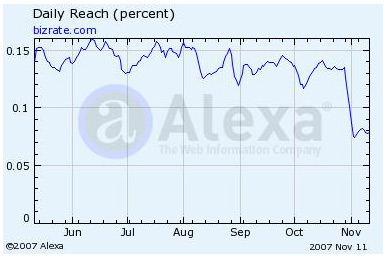Google Checkout Makes Shopping Sites Undesirable
As Google Checkout ramps up, many thin arbitrage / shopping aggregator sites are going to see a significant love loss from Google. In September Andrew Goodman wrote a piece on how paid search and organic search quality criteria may play off each other, after coming across a post on Inside AdWords where Google stated that some types of sites are likely to merit a low quality score:
The following types of websites are likely to merit low landing page quality scores and may be difficult to advertise affordably. In addition, it's important for advertisers of these types of websites to adhere to our landing page quality guidelines regarding unique content.
- eBook sites that show frequent ads
- 'Get rich quick' sites
- Comparison shopping sites
- Travel aggregators
- Affiliates that don't comply with our affiliate guidelines
Market Saturation
It does not help any of the shopping aggregators that there are about a dozen competitors (BizRate, Shopping.com, Shopzilla, MSN Shopping, NextTag, Epinions, DealTime, Pricegrabber, Pricerunner, Yahoo! Shopping, etc.). From a marketing standpoint almost all of them offer near identical user experience, so few of them are remarkable or linkworthy. The whole field (including Yahoo!) compete based on renting large swaths of links.
Everyone MUST Rent Links to Compete
Given Google's recent war cries against buying and selling links, and that there are so many shopping comparison sites, it is easy for Google to whack a few of them with it going unnoticed by anyone outside the companies. But if you are in the comparison shopping field and do not rent links, how can you compete with Yahoo! when they do? You can't.
The Fall of BizRate.com
I am uncertain if the drop in Google was algorithmic or editorial, but BizRate's Alexa ranking is off sharply over the past couple weeks, and if you look at top keywords they ranked for on Google (via Compete.com, SEO Digger, or SpyFu), their site is no longer ranking for many of them. In fact, I didn't even see the US site ranking for "biz rate". For that term bizrate.co.uk ranks #1. When I visit the UK site from a Google search result for "biz rate" the site asks if I want to view the US site or the UK site.
Here is a snapshot of the plunged BizRate traffic

And here is a running historical graph:
Google's Algorithmic Whitelists Are Not Carved in Stone
BizRate, which sold to the E.W. Scripps company for $525 million, used to be on Google's editorial white list.


